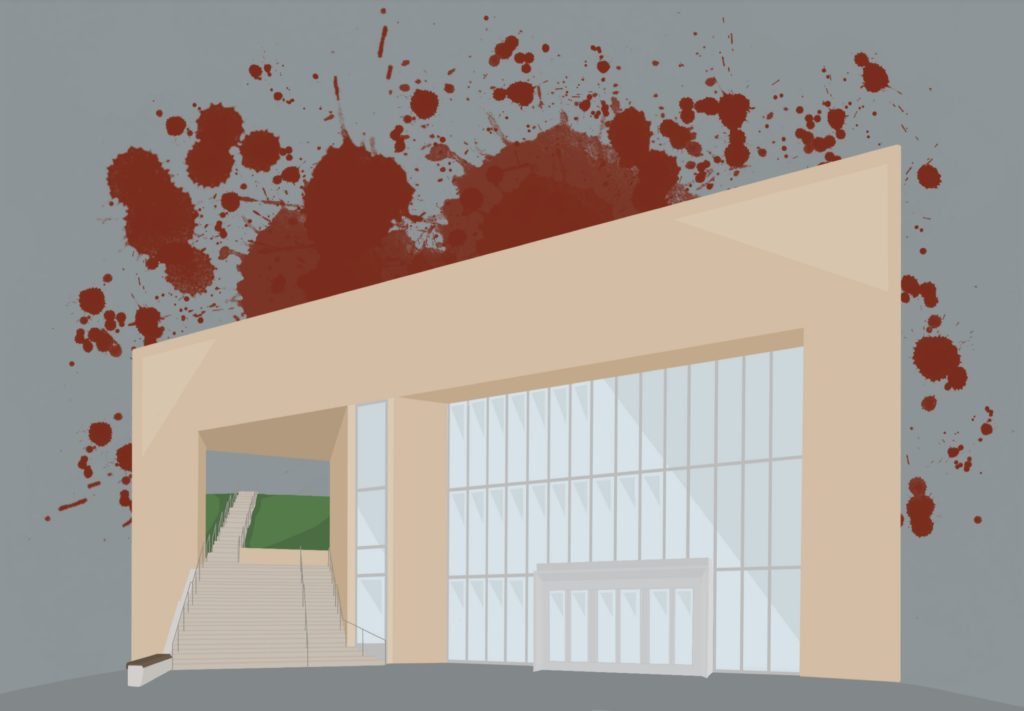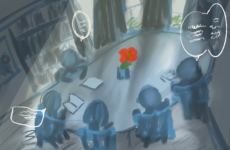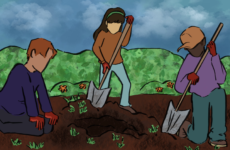
Anime enthusiast Sebastian Chang ’18 was denied the opportunity to pursue a Directed Study in his passion.
At Choate, we pride ourselves in fostering creativity and educational curiosity by providing students the tools to explore their specific interests and to learn experientially. We offer first-rate signature programs that welcome new artists, environmentalists, and mathematicians every year. We house an i.d.Lab bursting with high-tech resources for students to convert their imaginative musings into physical products. We are even revamping our entire daily schedule to increase class time specifically to incorporate more hands-on learning.
Yet, as we raise new buildings and redesign curricula, we overlook a hamartia — a flaw so seemingly small that we typically ignore it, but so impactful that it can shape a student’s intellectual experience at Choate. Indeed, the Directed Studies Program offers students tremendous academic opportunities, but the program features much untapped potential.
Currently, Directed Studies offer students the ability to explore their interests beyond the material covered in existing courses. Under the mentorship of a faculty adviser and through the approval of the Directed Study Committee, a student can propose a topic, draft a syllabus, and complete an intellectually challenging set of assignments and assessments. The one-term study covers an equivalent amount of material as a regular elective, and the student receives not only course credit but also a letter grade.
On the surface, all appears well with the system by which Directed Studies are approved. If students have completed all the courses relating to their fields of interest and desire further conquest of knowledge, they may apply for Directed Studies that more specifically address their intellectual curiosities. The student who successfully completes Human Anatomy and Physiology may proceed to conduct an in-depth directed study on the bone structure of the human hand, for example.
By limiting students to independently studying only familiar topics, we eliminate the potential to acquire a fundamental layer of intellectual skills. Creating a course based on what one already knows is relatively simple, while tackling a wholly new subject matter requires far more creativity and dedication and consequently promises a considerably more rewarding experience.
Last term, I applied for a directed study on the artistic, cultural, and psychological themes of Japanese anime and manga. I had enthusiastically brainstormed ideas with my faculty adviser and ultimately presented a syllabus and a list of course objectives to the Directed Study Committee. However, the committee rejected the proposal on the basis that I needed to take courses in psychology and Japanese history before undertaking such a study.
Choate students in general rarely find the space in their overloaded schedules to fit in every single elective they wish to take. For me, taking a series of HPRSS courses simply as a precursor to a directed study was logistically impossible, as I was already taking six courses per term; the idea to analyze anime and manga did not even occur to me until late in my Choate career.
As long as the directed study is of high educational value and the student formulates a reasonable and challenging syllabus, prerequisites should play little to no role in the approval process of the program. If a student proposes a viable plan to learn elementary Norwegian, that student is exhibiting an extraordinary amount of diligence for seeking to learn something totally new.
Moreover, overcoming the learning curve is a crucial element of education. If we forego the learning curve by choosing to explore only topics with which we are already comfortable, we deprive ourselves of the confidence to take risks in unknown territory. In post-collegiate environments, we often face situations in which we must figure out solutions to problems unlike any we have ever tackled. Fostering the spirit of independent learning in high school will give students a better skill set to dive into other unfamiliar topics later in life.
Lastly, curious and driven students should have the opportunity to pursue their interests in a healthy, educational, and faculty-guided environment. A student should possess the option to spend a term indulging one’s passion for black holes, even if he or she is not an expert in astronomy. Her fount of enthusiasm for the mysterious phenomena of spacetime will make up for the introductory lessons in the astronomy class she never took.
As Choate aims to tear down the boundaries that inhibit creative learning, let us provide every student the opportunity to grow in the areas that lead his or her neural networks to scintillate by broadening the scope of directed studies.




